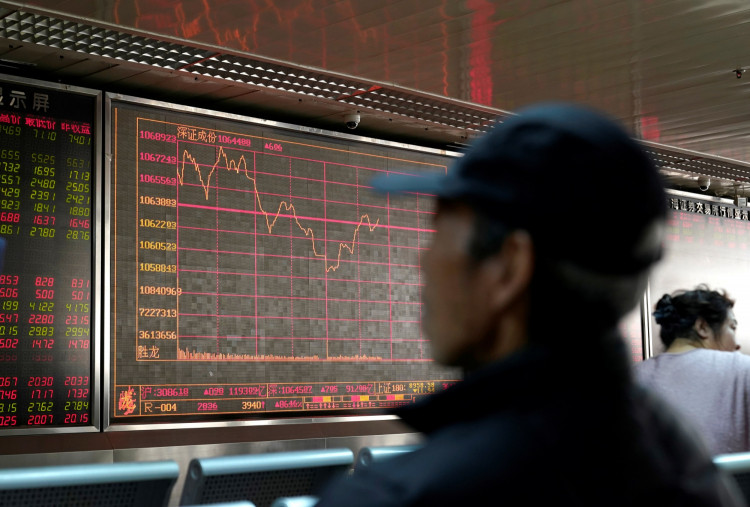Investors in China remain unconvinced of a quick resolution to the trade tensions between the country and the United States. This has become evident in the fact that major Chinese stocks have fallen for the third straight day despite the recent signing of a phase one trade deal between the world's two largest economies.
On Thursday, the Shanghai Composite Index dropped by a further 0.5 percent to 3,074.08. This pushed the total three-day decline to 1.3 percent. Auto-related stocks also fell, with Guangzhou Automobile Group dropping by 2.7 percent in Shanghai. The company's plans to invest over $1 billion into Chinese electric startup Nio have all but backfired. The company's shares in Hong Kong had also dropped by 3.8 percent following news of its planned investment.
Media and insurance stocks also took a beating in mainland China, with the Communist Party's People's daily dropping by 8 percent to 24 yuan. Media outlet Xinhua also saw its shares decline by 6.2 percent to 30.31 yuan. Meanwhile, China Life Insurance's shares had dipped by 2.5 percent to 33.92 yuan.
Analysts had initially expected the Chinese stocks to surge following the signing of the phase one trade deal between China and the United States. The stocks typically do react very quickly to these types of developments, which is why their continued decline had come as a surprise for most.
The phase one-trade deal signed by both countries will involve certain requirements that both nations have to meet. This will include a commitment from China to take more serious actions involving the protection of intellectual property rights.
JPMorgan Asset Management mentioned in a report that Asian markets will likely still be experiencing wild swings in the coming weeks as the outcome of the dispute still remains uncertain. Analysts at the company pointed out that there are still some highly sensitive issues that have not been resolved and these will likely continue to spark friction between the two nations.
The issues include the United States' continued sanctions against key Chinese companies and its increased scrutiny of investments made by Chinese firms abroad. The asset management company added that markets would continue to move at an elevated risk premium, continuing its volatility throughout the rest of the year.
The continued downswing of the major Chinese stocks can also be attributed to the fact that most investors are still awaiting the release of China's key economic data this week. The country's report on its full-year economic growth for 2019 is expected to be released today, Friday.






